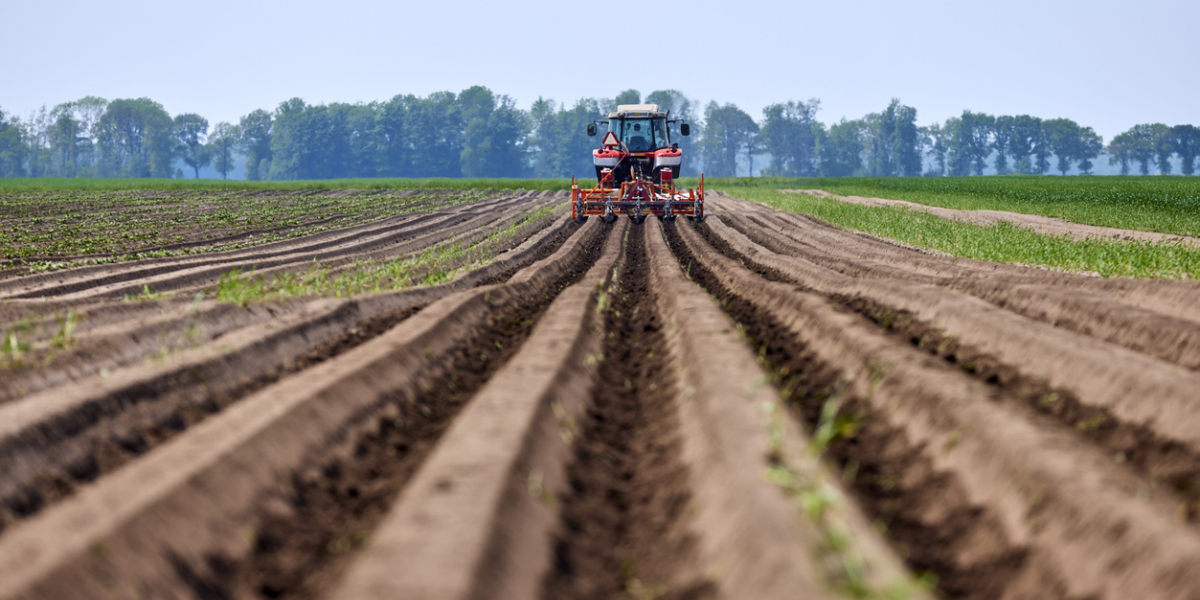
May 28, 2025
By Olivia Richardson and Ryan Tougas-Cooke
Canadian farmers have faced substantial uncertainty over the last few years. Market disruptions driven by regional conflicts and tariff tensions are making key products that farmers rely on, like fertilizer and fuel, more expensive. At the same time, more frequent and severe extreme weather events are affecting food production. Manitoba issued record-breaking crop insurance payouts totalling more than $400 million in 2021, and drought caused Saskatchewan’s crop production levels to drop by a startling 47% that same year.
While Canadian farmers are navigating mounting weather, market and trade challenges, they are also trying to transition to climate-smart practices that strengthen their farms’ resilience. However, sometimes these practices—known as beneficial management practices (BMPs)—have an uncertain return on investment or result in short-term crop yield and profit losses for farmers.
The Smart Prosperity Institute is assessing the feasibility of new risk-management tools with our partners, Farmers for Climate Solutions and the Nature Investment Hub, with support from the Scotiabank Climate Action Research Fund. We’re working to implement small-scale on-farm pilots that test new programs with Canadian farmers. The ultimate goal of the project is to lower the risk of trialing new BMPs, allowing farmers to assess whether the new practice works on their farm, determine effective strategies and access technical support to help with implementation and planning.
New risk-management tools are vital to farmers navigating this transition. In fact, a recent national poll from Farmers for Climate Solutions found that 85% of farmers indicated that risk-management tools were somewhat or very important to them when trying new practices on their farms. Results like these demonstrate the need for new and improved tools that share and manage farm-level adoption risks.
Canada already offers a vital set of risk management programs, but international jurisdictions have begun exploring how to use risk-management tools to help farmers trial and adopt BMPs with greater confidence. Despite being well-positioned to integrate similar tools, Canada has lagged behind on implementation.
Canada needs to not only explore new risk-management tools, but also identify fit-for-purpose tools that are tailored to specific BMPs, production systems and on-farm realities. Choosing the right tool depends on several factors: funding availability, desired outcomes, partnerships and inclusion of other supports and reporting requirements.
Tools with a lot of potential that should be considered include:
This spring, the partnership launched its first pilot, the Split Nitrogen Application Profit Guarantee Pilot in Ontario. This pilot is intended to collect data and refine program design elements to apply the tool to more novel or innovative practices in future pilots. The initial pilot has recruited a small group of farmers to test the production guarantee model in the context of a well-known nitrogen management practice and enhanced soil testing practices to define application rates. The program also offers subsidized technical support to help with nutrient management planning, soil testing and rate determination.
Members of the project team will present some of the initial research findings at the Canadian Agricultural Economic Society conference at the end of May, and more updates will be available in the coming months as the project develops. Our teams intend to trial additional risk-management tools to de-risk practice adoption in future growing seasons and build a comprehensive toolkit for Canada’s agriculture sector.
As the risks facing Canadian farmers grow, so too does their need for innovative and reliable risk-management tools. The tools mentioned here represent a timely opportunity to expand farmers’ risk-management toolkit and better support them in adopting climate-smart practices without adding to their financial stress. By partnering in the development of these tools, insurance and financial actors can play a pivotal role in building a more resilient, competitive and sustainable agri-food system. This isn’t just about protecting farms—it’s about investing in the future of Canadian agriculture.
This is the first of a series of blog posts that we’ll write throughout this multi-year project. We look forward to sharing our research findings with you here. If you’d like to speak to us about this project and our related work, please email Olivia and Ryan care of info@smartprosperity.ca. You can also stay up to date on all SPI research activities by subscribing to our monthly newsletter.